1ST SIMULATION EXERCISE TO ASSESS GHANA’S PREPAREDNESS TO COMBAT CASSAVA VIRAL DISEASES HELD
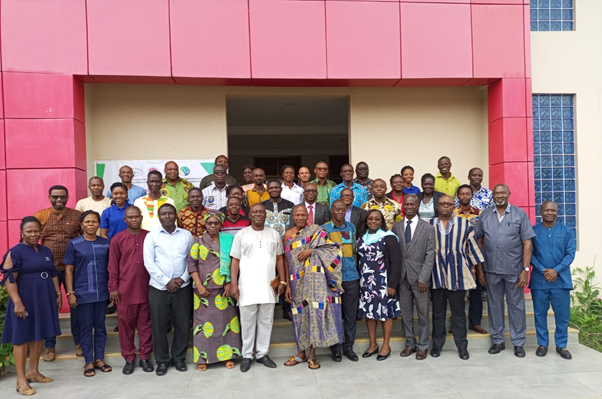
The nation has been urged to prepare towards the potential invasion of a new plant disease, the Cassava Brown Streak Virus into the country. The call was made by the Director of the Plant Protection and Regulatory Services Directorate (PPRSD) of the Ministry of Food and Agriculture, Mr. Eric Bentsil Quaye during a stakeholders’ meeting on the simulation of viral disease management at Koforidua in the Eastern region of Ghana.
The meeting, which was organized as part of activities under the Central and West African Virus Epidemiology (WAVE) for root and tuber crops project, brought together researchers and policy makers from various institutions such as the CSIR-Crops Research Institute, the Univeristy of Ghana, Legon, the Kwame Nkrumah University of Science and Technology (KNUST), the Plant Protection and Regulatory Services Directorate (PPRSD), CABI International and the Ghana Atomic Energy Commission (GAEC). Other participants included regional directors of the Department of Agriculture from Ashanti, Eastern, Volta among others.
Delivering the keynote address at the meeting, Mr. Quaye outlined the devastating effects viral diseases such as the cassava brown streak virus could cause to the crop and indicated the need for all stakeholders to work together in the event Ghana is affected.
“Cassava is a very important crop in this country. The resilient nature of the crop has made it a strategic crop for food security and poverty reduction in the country. However, its sustainability is hindered by perennial incidences of viral diseases such as the African Cassava Mosaic Virus which is endemic in West and Central Africa and the more devastating cassava brown streak virus which is currently prevalent in East and Central Africa and spreading westwards towards Ghana”, he stressed.
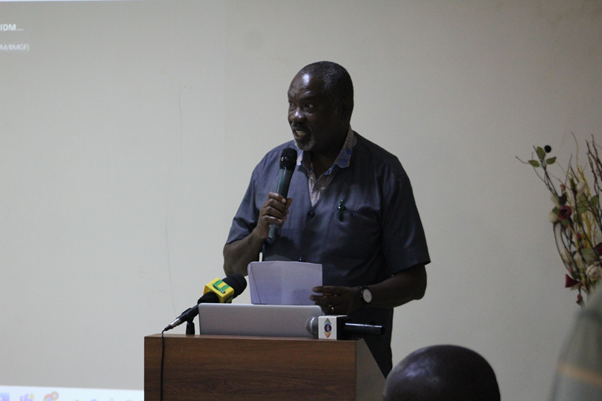
Mr. Quaye also added that, the simulation exercise will not only afford the nation the opportunity to test its preparedness and response to a potential cassava brown streak virus invasion but will also help identify weaknesses that need to be addressed.
The coordinator of the WAVE project in Ghana, Dr. Allen Oppong, a plant virologist, and a Principal Research Scientist at the CSIR-Crops Research Institute, expressed gratitude to the Bill and Melinda Gates Foundation (BMGF) and the Foreign Commonwealth and Development Office of the United Kingdom as well as the European Union and CORAF for funding the exercise.
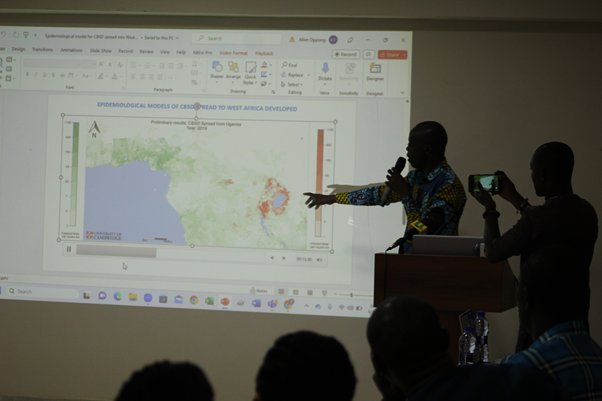
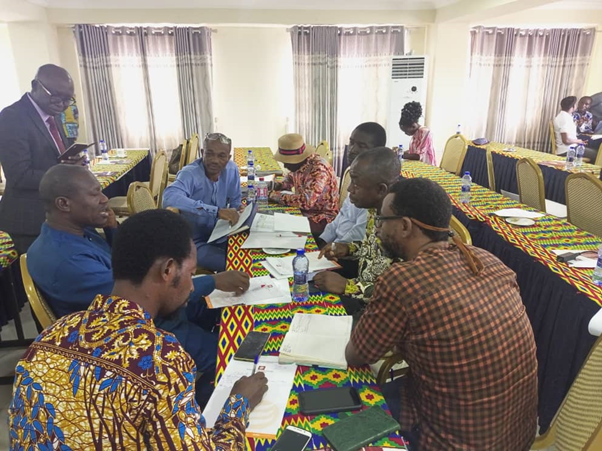
He further indicated that the purpose of the meeting was to afford stakeholders the opportunity to among other things, assess the preparedness of combating any new plant viral disease incidence in Ghana, determine the requirements for combating any new plant viral disease, identify the role of various stakeholders and set out a road map for enhancing the country’s capacity to forecast, prevent, promptly detect and respond to plant viral diseases. He also noted that, the meeting will allow stakeholders put a mechanism in place to undertake the actual simulation exercise on the field. Identified gaps in the simulation exercise would then be reviewed and addressed in a second meeting in order to update the national plant disease incidence response plan document developed in 2019. “We don’t want to wait till Ghana is attacked before we act. We want to prepare ourselves ahead of time”, said Dr. Oppong.
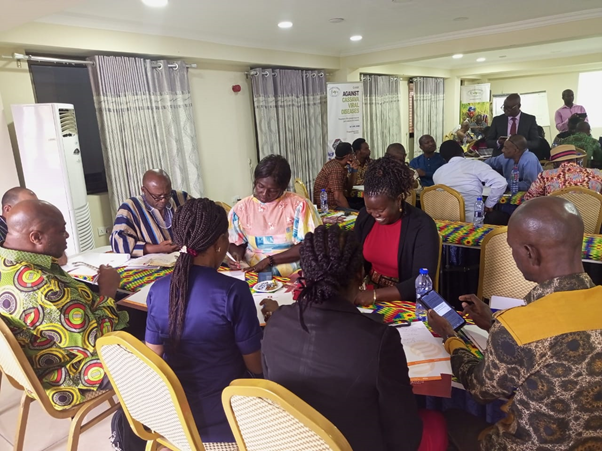
The Director of CSIR-Crops Research Institute, Professor Moses Brandford Mochiah, stated that disease monitoring and surveillance were a shared responsibility for all stakeholders with the PPRSD leading the way. He called for more collaboration and effective communication among stakeholders. “We all have a role to play in this fight if we are not to be taken unawares by events,” he added.
The WAVE project is funded by the Bill and Melinda Gates Foundation (BMGF), the United Kingdom Foreign Commonwealth and Development Office (FCDO), with support from the European Union through CORAF. Its aim is to understand and predict the emergence and evolution of root crop viruses in West and Central Africa through a coordinated management of viral disease threats to ensure food security.
Contributors: Dr. Allen Oppong, Bernard Sakyiamah, Enoch Bobie Agyemang.
